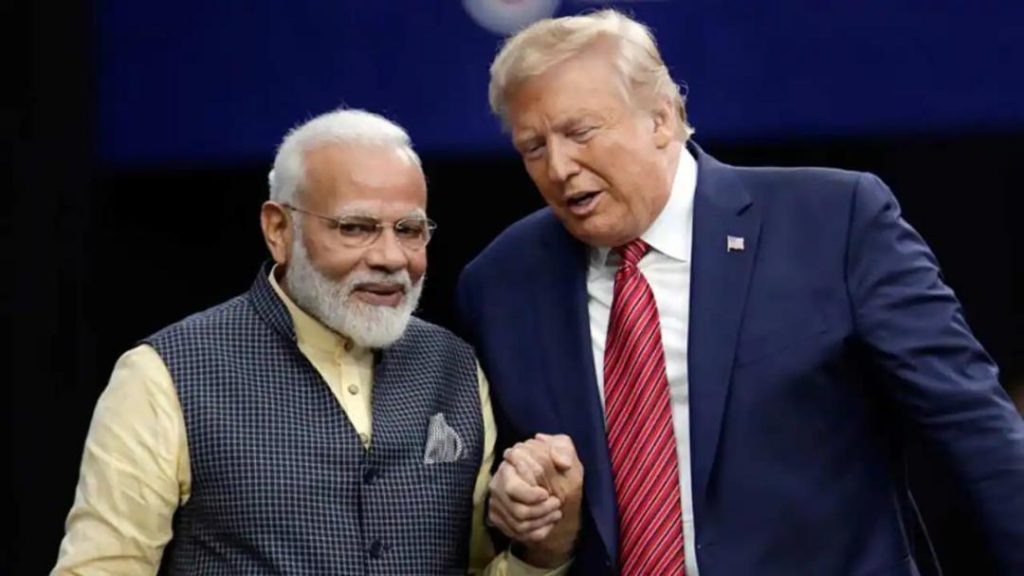
Trump used tariff threats to push India to buy more US-made military equipment: Report
In a shocking revelation, the Washington Post has reported that US President Donald Trump used tariff threats to push India, along with Taiwan and Indonesia, to increase their defence spending and buy more US-made military equipment. According to internal documents cited by the Washington Post, Trump’s trade team used tariff talks as a tool to secure business deals for favored companies and linked market access to unrelated geopolitical objectives.
The report indicates that Trump’s administration used a strategy of “tariff diplomacy” to pressure these countries into making defence purchases from the United States. This tactic involved threatening to impose tariffs on imports from these countries unless they agreed to buy more US-made military equipment.
It is worth noting that India has been a major buyer of US-made military equipment in recent years. In 2018, India signed a deal with the US to purchase 22 Apache attack helicopters and 15 Chinook heavy-lift helicopters for its military. This deal was valued at over $2 billion.
The Washington Post’s report is based on internal documents obtained through a Freedom of Information Act request. The documents show that the Trump administration used a range of tactics to pressure India into making defence purchases, including threatening to impose tariffs on Indian imports and linking market access to defence agreements.
For example, in 2018, the US Trade Representative’s office sent a letter to India’s ambassador to the US, Navtej Sarna, warning that the US would impose tariffs on Indian imports if India did not agree to buy more US-made military equipment. The letter stated that the US was “concerned about India’s willingness to engage in discussions on defence purchases” and that the US would “take all necessary actions to protect the interests of American companies.”
The report also suggests that the Trump administration used similar tactics to pressure Taiwan and Indonesia into making defence purchases from the US. In the case of Taiwan, the US threatened to impose tariffs on Taiwanese imports unless Taiwan agreed to buy more US-made military equipment. In Indonesia, the US linked market access to defence agreements, with the US agreeing to provide Indonesia with military aid and training in exchange for Indonesia’s promise to buy more US-made military equipment.
The report has sparked concerns about the impact of Trump’s tariff diplomacy on global trade and defence relations. Critics argue that the use of tariff threats to pressure countries into making defence purchases is a form of “bullying” and that it undermines the principles of free and fair trade.
“This is a clear case of the Trump administration using tariffs as a tool to bully other countries into doing its bidding,” said a senior trade official who spoke on condition of anonymity. “It’s not a legitimate way to conduct trade diplomacy and it’s not in line with the principles of free and fair trade.”
The report has also raised concerns about the impact on India-US relations. India has been a key partner for the US in the Indo-Pacific region, and has been strengthening its military capabilities to counter the growing military presence of China.
However, the use of tariff threats to pressure India into making defence purchases has raised questions about the nature of the US-India relationship. Is it a partnership based on mutual respect and cooperation, or is it a relationship based on coercion and bullying?
The Indian government has yet to comment on the report, but it is likely to be a topic of discussion during the upcoming US-India 2+2 dialogue, which will be held in the coming weeks.
In conclusion, the Washington Post’s report has revealed a shocking new dimension to Trump’s tariff diplomacy. The use of tariff threats to pressure countries into making defence purchases is a clear example of the Trump administration’s willingness to use any means necessary to achieve its goals, regardless of the impact on global trade and defence relations.
As the US-India relationship continues to evolve, it is essential that India maintains its independence and sovereignty in the face of US pressure. The use of tariff threats to pressure India into making defence purchases is a clear violation of the principles of free and fair trade, and it is essential that India takes a firm stand against such tactics.






